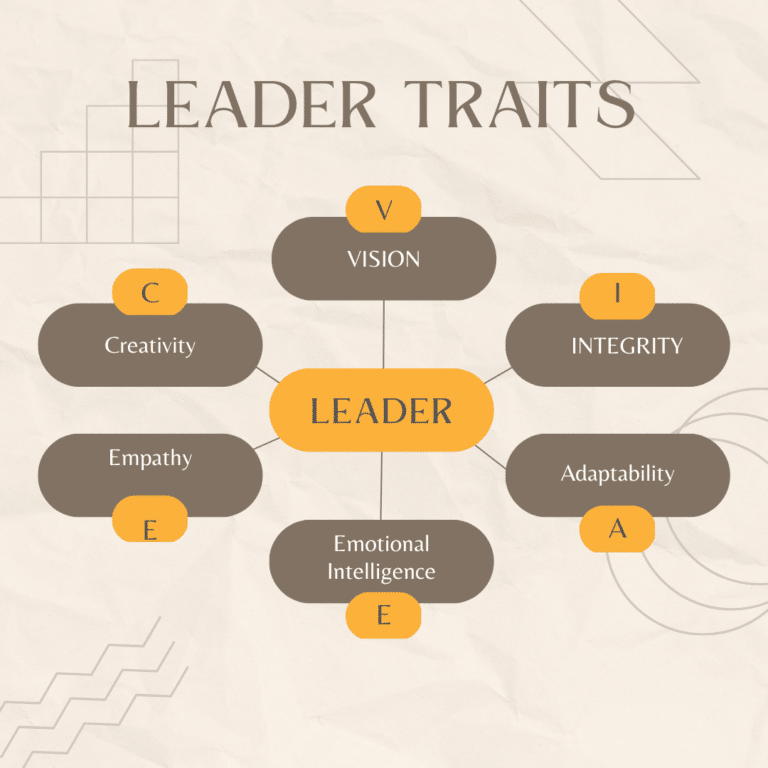The best qualities of a leader are essential for inspiring and motivating their team towards success. Integrity, communication skills, and adaptability are some of the best qualities of a leader that build strong relationships and a positive work environment.
Leadership is a vital component of any successful organization, and the qualities that make a great leader are often the difference between success and failure.
Leaders must be able to inspire and motivate their teams, make difficult decisions, and have a clear vision for the future. In this article, we’ll explore some of the best qualities of a leader.
Table of Contents
ToggleVision
One of the most critical qualities of a leader is vision. Leaders must have a clear idea of where they want to take their organization, and they must be able to communicate that vision to their team. A strong vision helps to motivate and inspire employees, and it provides direction for the organization’s goals and objectives.
Integrity
Leaders must be honest and trustworthy. They must have a strong moral compass and be committed to doing the right thing, even when it’s difficult. Leaders who demonstrate integrity earn the respect and trust of their employees, which leads to a more productive and positive work environment.
Communication Skills
Effective communication is essential for leaders. Leaders must be able to articulate their ideas clearly and concisely, and they must be able to listen to feedback from their team. Leaders who communicate well are better able to build strong relationships with their employees, which leads to better collaboration and a more engaged workforce.

Emotional Intelligence
Emotional intelligence is the ability to recognize and manage one’s emotions and the emotions of others. Leaders with high emotional intelligence are better able to understand their employees’ perspectives and build strong relationships with them. They are also better able to manage conflict and make difficult decisions.
Adaptability
Leaders must be able to adapt to changing circumstances. They must be able to pivot quickly when the situation calls for it and be open to new ideas and perspectives. Leaders who are adaptable are better able to navigate challenging situations and steer their organizations towards success.
Empathy
Empathy is the ability to understand and share the feelings of others. Leaders who demonstrate empathy are better able to connect with their employees and build strong relationships with them. They are also better able to understand their employees’ perspectives and motivations, which helps to create a more positive work environment.
Decisiveness
Leaders must be able to make difficult decisions quickly and confidently. They must be able to weigh the pros and cons of different options and choose the best course of action for their organization. Leaders who are decisive inspire confidence in their employees and help to create a sense of stability and direction.
Creativity
Leaders must be creative and innovative. They must be able to think outside the box and come up with new ideas and approaches to problems. Leaders who are creative inspire their employees to be more innovative and to think critically about their work.
In conclusion, the best qualities of a leader include vision, integrity, communication skills, emotional intelligence, adaptability, empathy, decisiveness, and creativity.
Leaders who possess these qualities are better able to inspire and motivate their teams, make difficult decisions, and navigate challenging situations. By embodying these traits, leaders can create a positive and productive work environment that leads to success for their organization.
“The 21 Indispensable Qualities of a Leader” is a book written by John C. Maxwell, a renowned leadership expert and speaker. The book is a concise guide to the essential qualities that make a great leader. Maxwell draws from his extensive experience in the field of leadership to provide insights into the traits that are necessary for success as a leader.
One of the strengths of the book is its brevity. The chapters are short and to the point, making the book an easy and enjoyable read. The author’s writing style is clear and engaging, and his anecdotes and examples help to illustrate the qualities he discusses.
Another strength of the book is its practicality. Maxwell provides actionable advice and tips on how to develop each of the 21 qualities. He also includes exercises and reflection questions at the end of each chapter, which help the reader to apply the concepts to their own lives and leadership style.
Overall, “The 21 Indispensable Qualities of a Leader” is an excellent resource for anyone looking to improve their leadership skills. The book is concise, practical, and full of useful insights and advice. Whether you are a seasoned leader or just starting on your leadership journey, this book is well worth reading.
Checkout other posts related to Personal Development over here.



